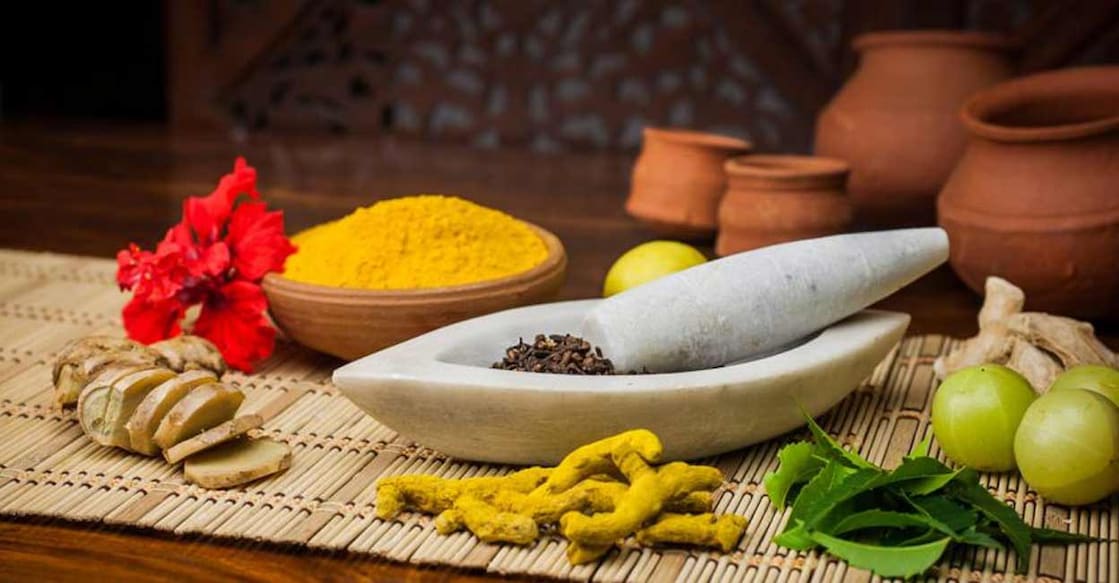Should you avoid methi and palak during monsoon? Here's what Ayurveda recommends

Mail This Article
When the clouds roll in and humidity rises, your cravings may shift toward hot snacks and hearty meals. But according to Ayurveda, monsoon is a sensitive season. One where your digestive strength, or Agni, tends to dip and the Vata dosha becomes aggravated. That means some foods that are fine in other seasons could disrupt balance and make you more prone to indigestion, infections, or sluggishness.
Here’s what Ayurveda recommends you should not eat in Varsha Ritu (monsoon), and what to choose instead.
Why digestion weakens during monsoon
Ayurveda identifies six seasons, each with a unique influence on the body. In monsoon (Varsha Ritu), the body faces Agni mandya - a weakening of the digestive fire. Simultaneously, Vata dosha becomes dominant due to increased moisture and wind in the atmosphere. This double hit can lead to bloating, low immunity, joint pain, and skin issues.
To counteract this, you need foods that are warm, mildly spiced, and easy to digest, and must avoid those that aggravate Vata or dampen Agni further.
Foods to avoid during monsoon
1. Leafy greens
Spinach, methi, lettuce, and coriander may be contaminated due to monsoon moisture and soil parasites. They can also be harder to digest when Agni is weak.

2. Raw and cold foods
Salads, smoothies, and refrigerated items reduce digestive strength and may increase bloating. Ayurveda recommends avoiding raw or chilled foods during the rainy season.
3. Fermented and fried foods
Fermented foods like old dosa/idli batter and pickles can increase Pitta and Vata if not fresh. Fried snacks may taste comforting but are heavy and increase the risk of indigestion.
4. Excessive dairy
Products like paneer and cheese can increase mucus and are slow to digest. If consuming dairy, use fresh milk or make light dishes like spiced buttermilk or turmeric milk.
5. Seafood and red meat
These foods are heavy, increase the Tamas quality, and are risky during monsoon when humidity promotes spoilage. Ayurveda recommends reducing intake of heavy meats and focusing on lighter proteins.
Foods to embrace during monsoon
1. Warm, cooked meals
Freshly prepared, warm foods are easier on the digestive system. Soups, khichdi, porridges made with rice, barley, or wheat, and mildly spiced stews help maintain Agni and nourish the body without overloading it.
2. Sour and salty tastes
According to Ayurveda, sour and salty tastes help pacify aggravated Vata. Use tamarind, lemon juice, or rock salt in moderation to stimulate digestion and appetite.
3. Herbal teas and digestive spices
Warm herbal teas made with ginger, cinnamon, tulsi, or fennel help ease digestion and fight seasonal sluggishness. Add cumin, coriander, turmeric, or dry ginger to your meals to rekindle the digestive fire.

4. Buttermilk
Avoid curd, which is heavy and mucus-forming, and choose buttermilk instead. Add a pinch of roasted cumin or dry ginger powder to improve taste and aid digestion.
5. Seasonal vegetables
Go for easy-to-digest, water-rich vegetables like bottle gourd (lauki), ridge gourd (turai), ash gourd, and pumpkin. These help maintain hydration and are less likely to cause gas or bloating.
Tips for monsoon health
- Drink only boiled or filtered water
- Eat at regular times and avoid overeating
- Avoid sleeping during the day, which can increase Kapha and lethargy
- Use light oils like mustard or sesame for cooking
Aligning your diet with the rhythm of the season helps prevent seasonal illnesses and improves gut health, immunity, and energy during the rains.
Sources:
- Tiwari, Mamta. "Ritucharya: Ayurvedic Seasonal Regimen and Its Importance in Disease Prevention." ResearchGate, 2022.
- Ashtanga Hridayam, Sutrasthana, Chapter 3 (Ritucharya).
- Journal of Ayurveda and Integrated Medical Sciences (JAIMS), Vol. 6, Issue 5, 2021,

